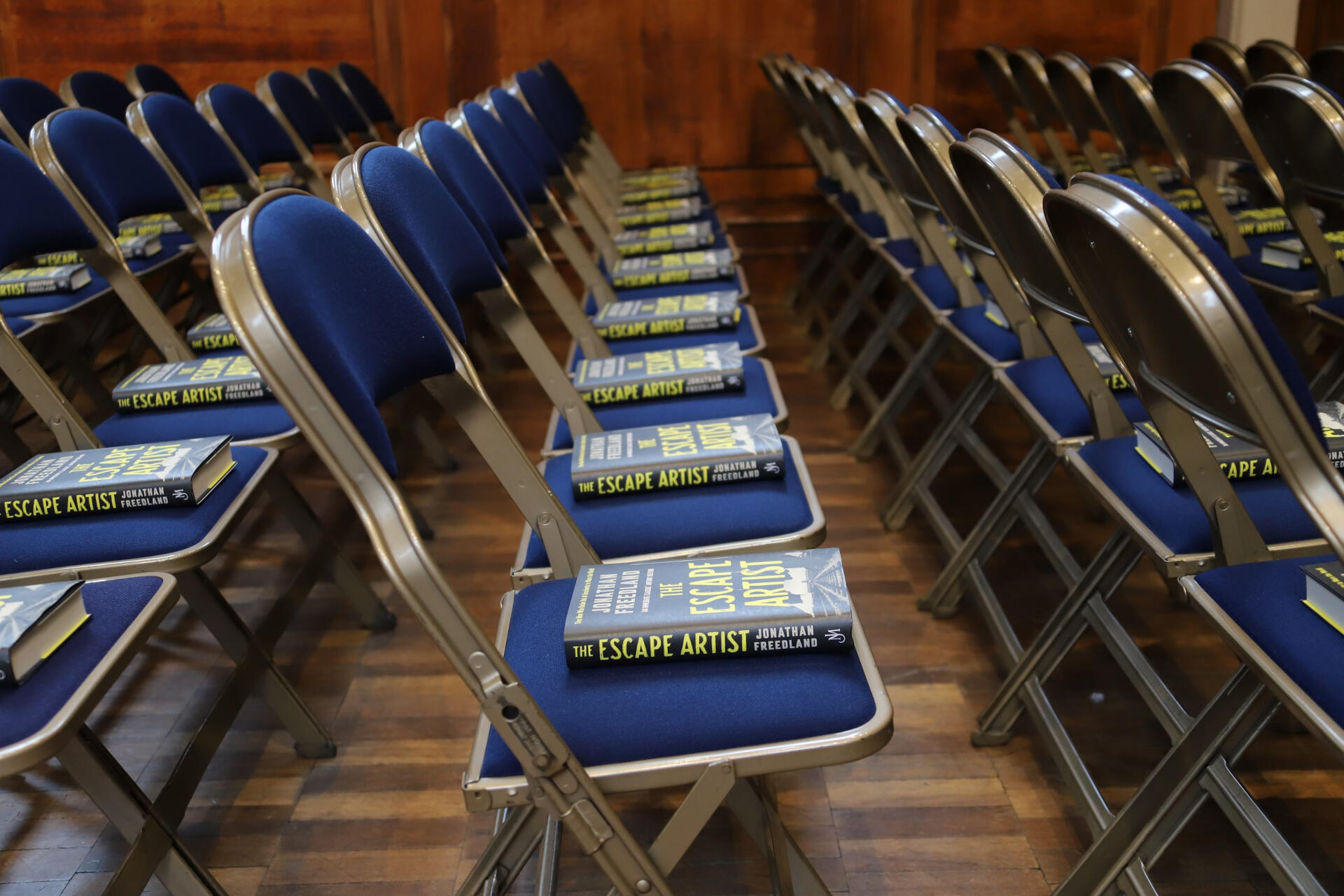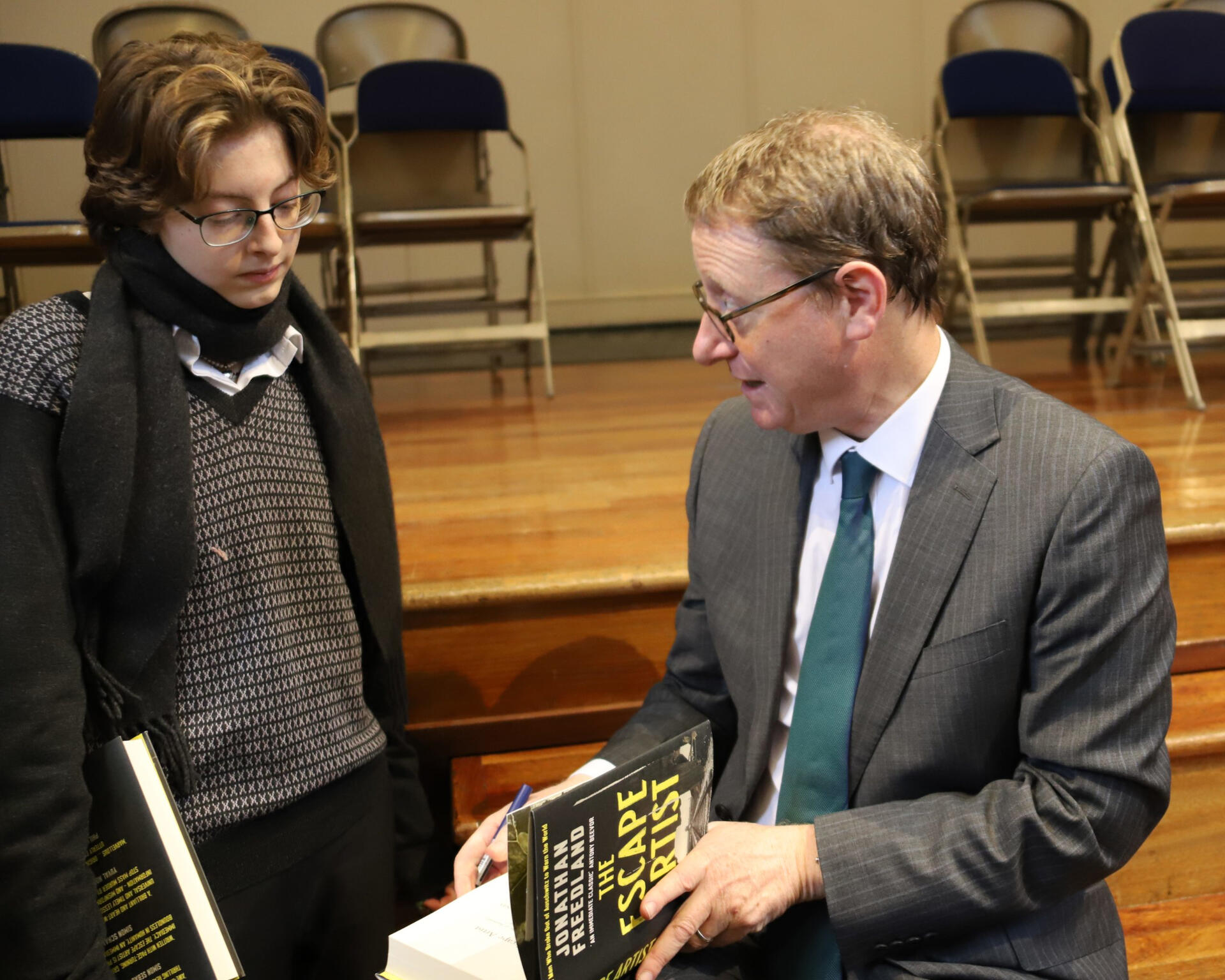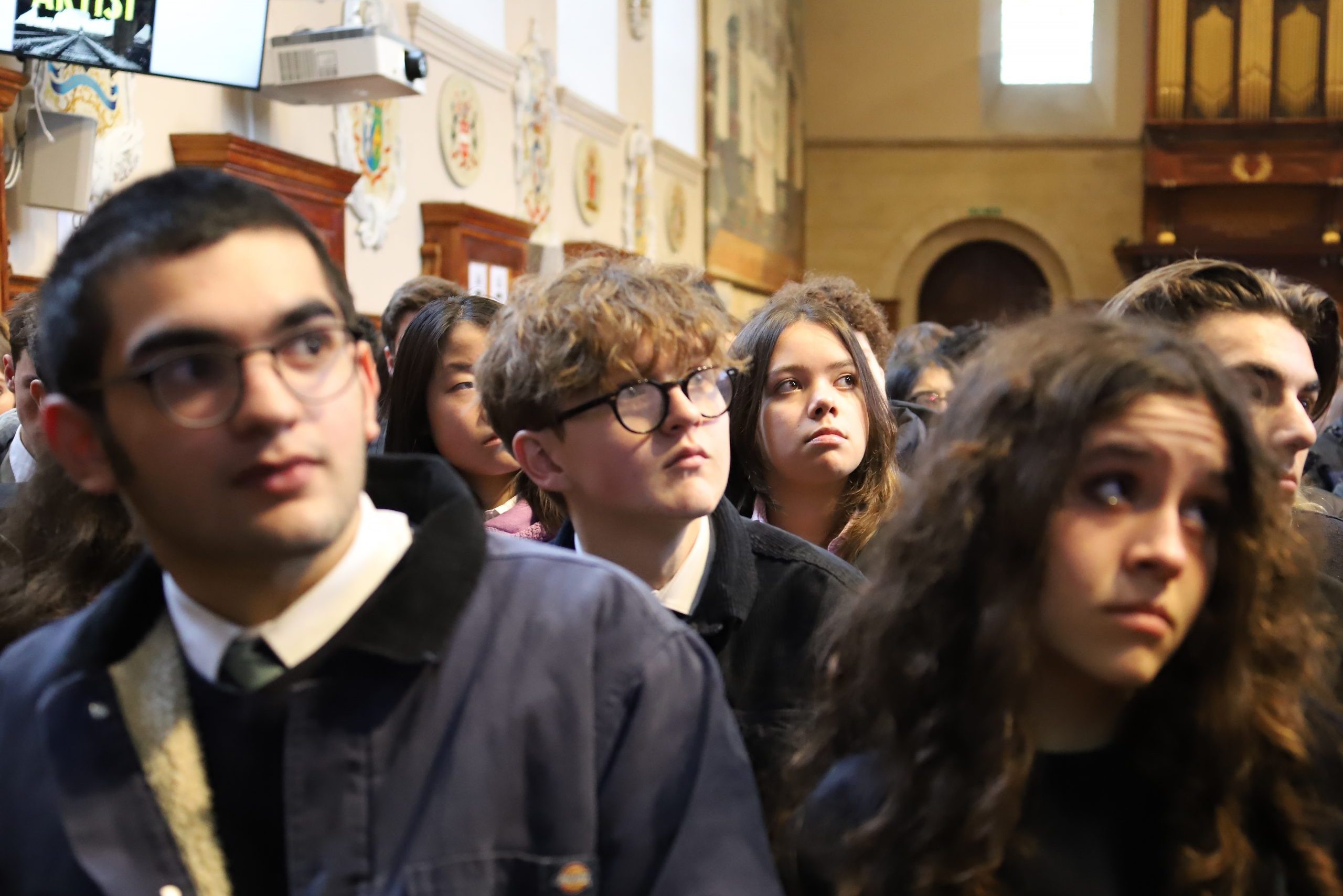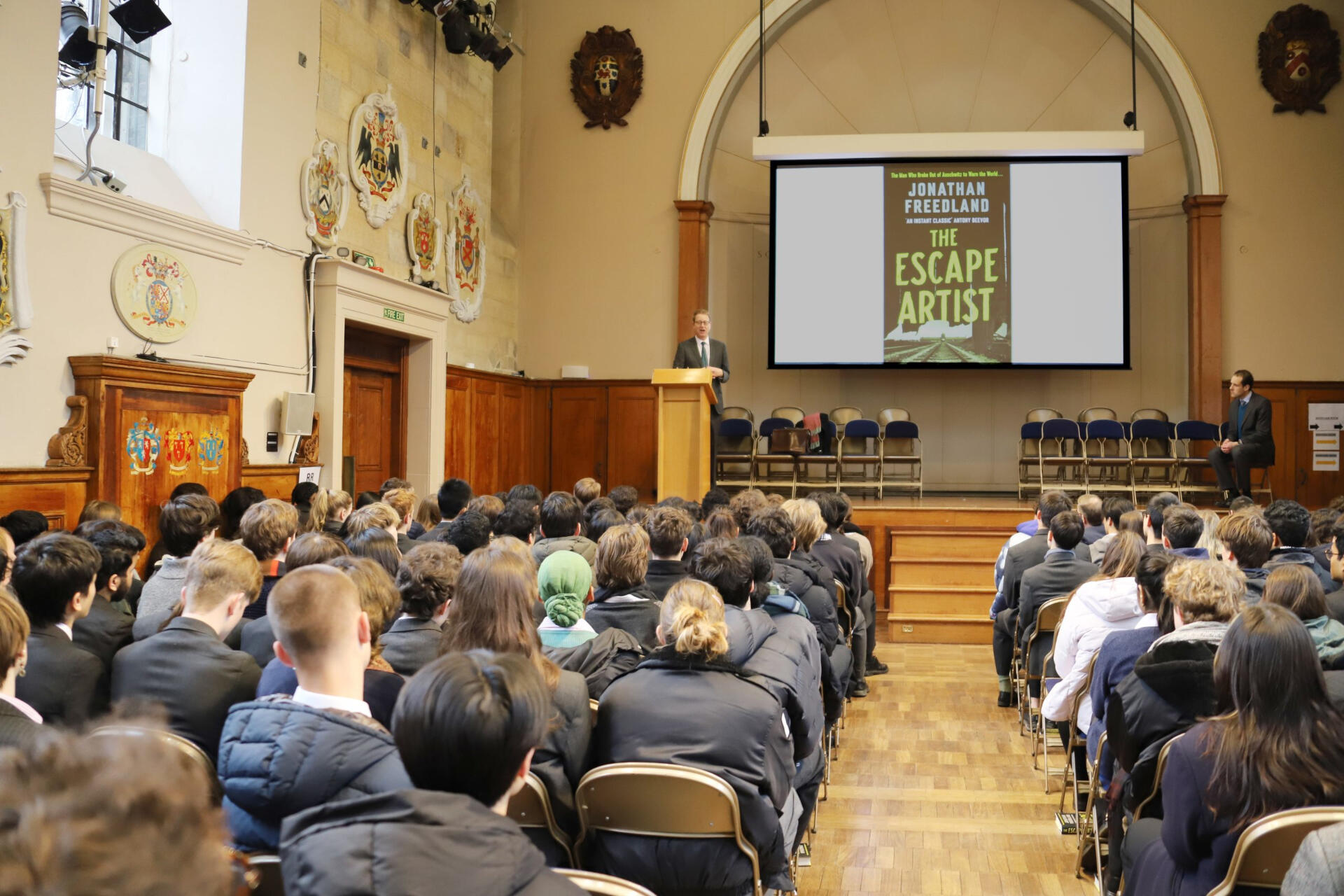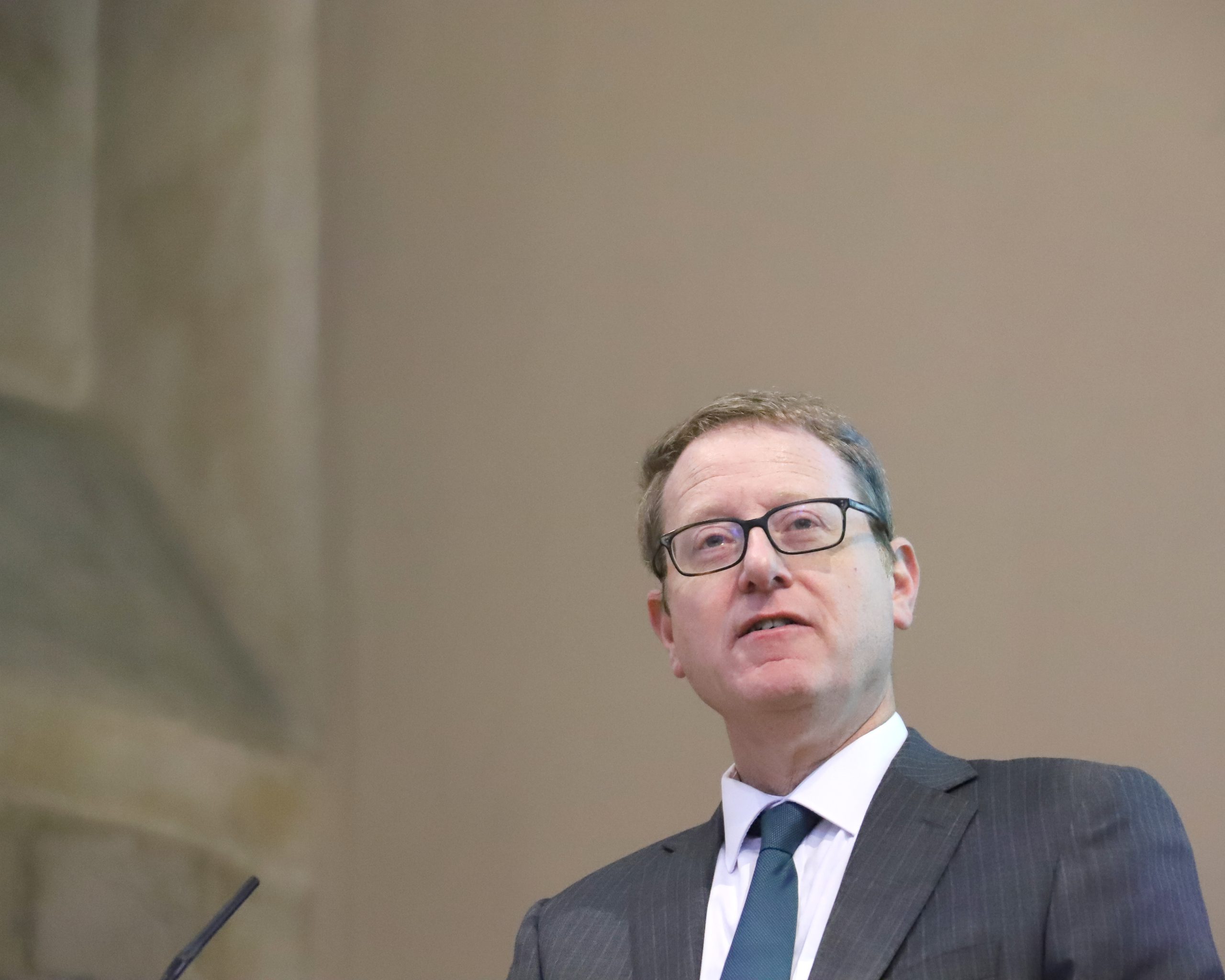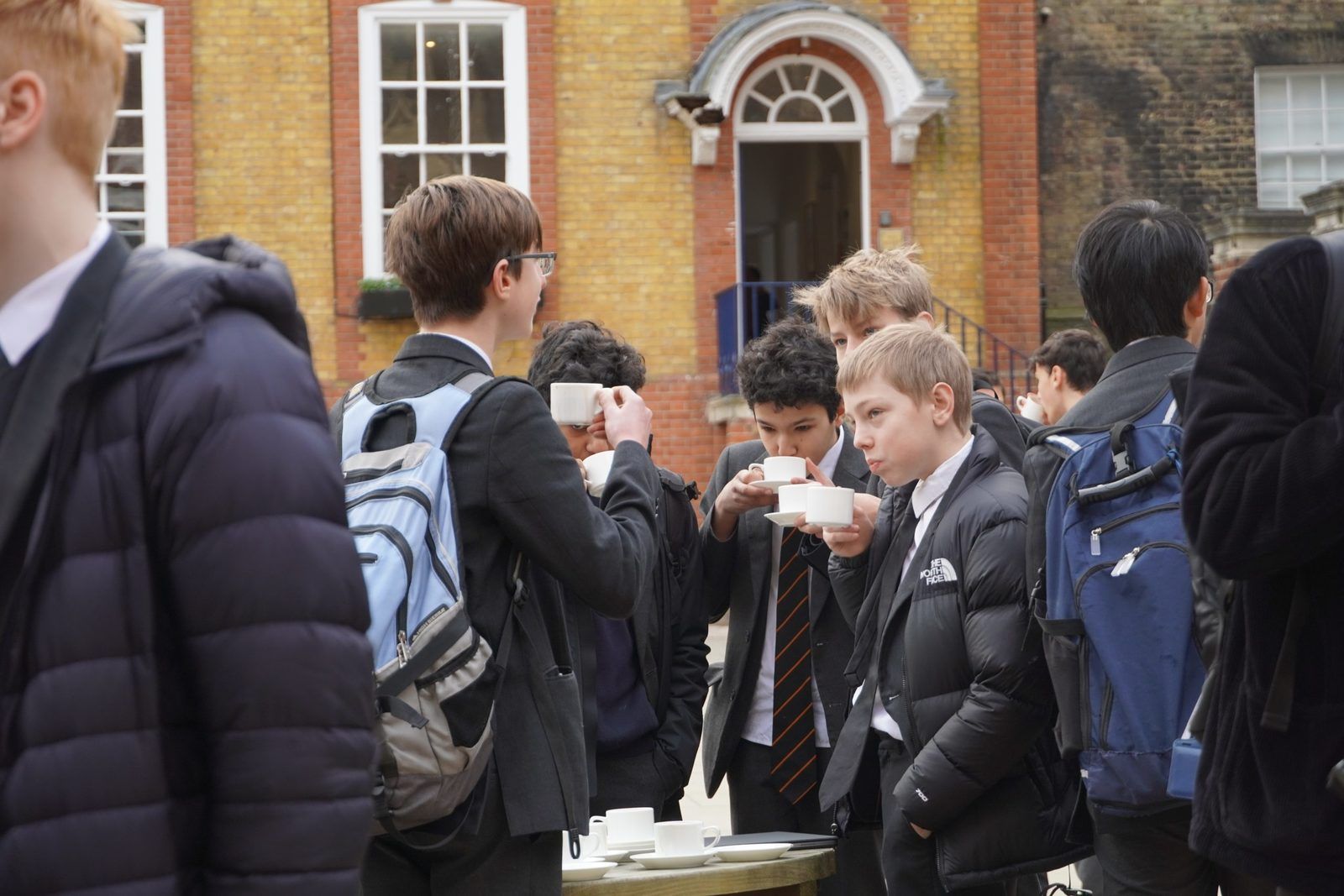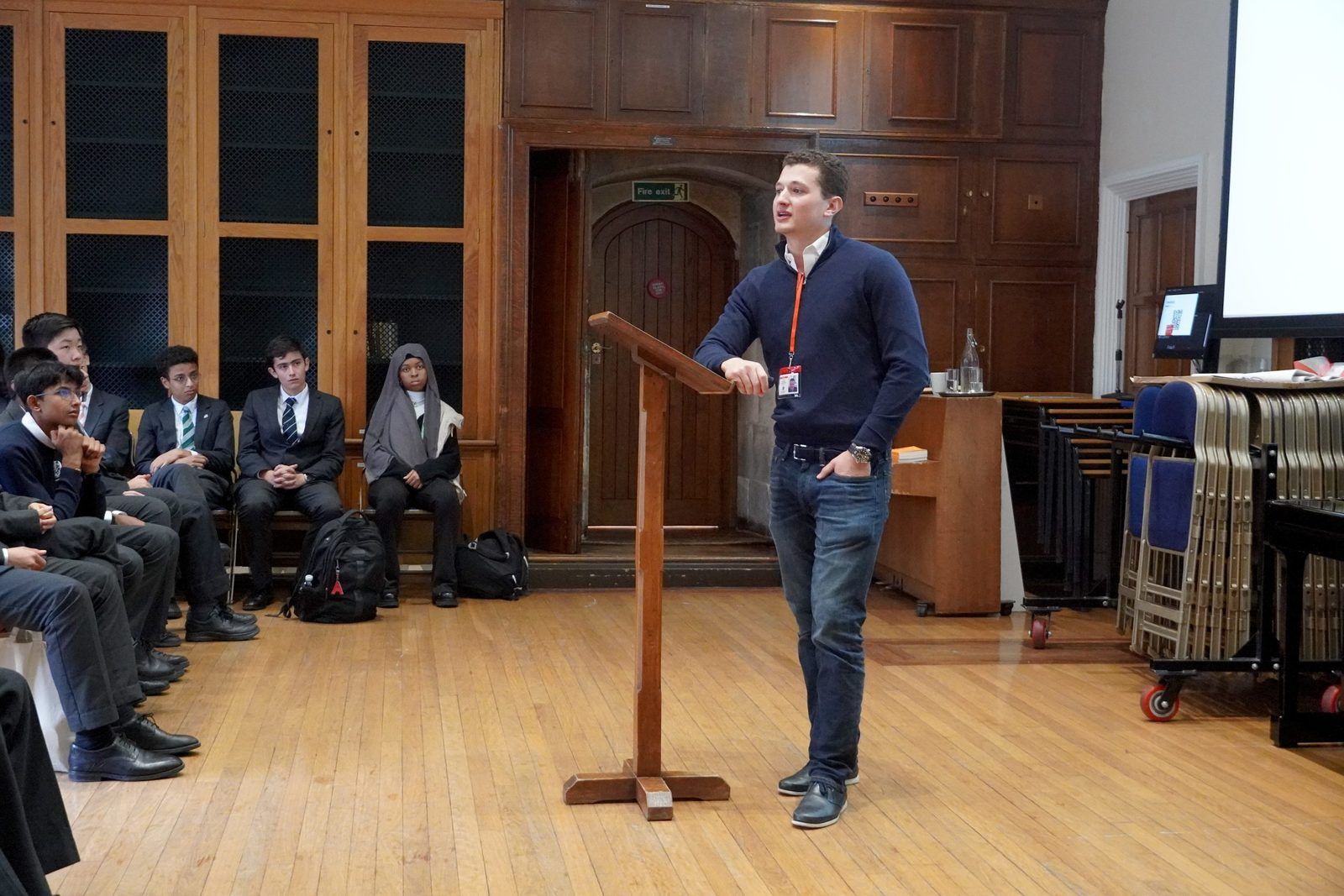Sunday Times Best Seller reveals Rudolf Vrba’s daring escape from the Nazis and his quest to show the Holocaust to the world
For Holocaust Memorial Day in January, journalist and author Jonathan Freedland spoke in a John Locke Lecture about his recently-published book, The Escape Artist, which tells of Rudolf Vrba’s thrilling escape from Auschwitz, and how his successful mission to warn the world of the atrocities taking place the Nazis’ mass extermination camp pushed him to his physical and mental limits.
The Guardian columnist’s book looks in depth at the harrowing account of its protagonist Rudolf, who, upon realising that prisoners were being killed in huge numbers began to understand that deception was one of the secret tactics being used by the Nazis; it was used to encourage compliance, without panicking. Rudolf decided that he must find a way to expose the innerworkings of the concentration and extermination camps. He was aware, however, that people would not believe his words alone, so he started to memorise the number of Jews that were arriving on ‘transports’ every day as well as the trains’ origins, and he committed to memory all of the facts.
In the spring of 1944, with “no map, no compass and no friends” on the outside, 19-year-old Rudolf escaped Auschwitz with his companion, Alfred Wetzler, and together over 11 days they crossed mountains, rivers, forests and marshland until, in a state of malnourishment, they reached Slovakia. There the pair wrote a report detailing all of the information they had gathered, which was secretly circulated through Europe, eventually reaching the desks of Churchill, Roosevelt and the Pope, with pleas to bomb the rail tracks that led to Auschwitz. At first, the leaders did not respond to these pleas, but later the report reached the hands of a British journalist in Zurich who translated key passages into English and published it in the press, which moved the allies to act.
Jonathan concluded his address by reflecting on how “Rudolf’s story is also the story of how history can change a life, even down the generations; how the difference between truth and lies can be the difference between life and death; and how people can refuse to believe in the possibility of their imminent destruction, even, perhaps especially, when that destruction is certain.”
Rafael (Sixth Form, GG) said: “It was a privilege to hear the profound story of Rudolf Vrba told so brilliantly by Mr Freedland. I learnt about the incredible tale of the man who saved the lives of thousands of Hungarian Jews and exposed the horrors of Auschwitz, and Mr Freedland made significant and valuable points about how historiography of the Holocaust, particularly as regards collaboration, is changing, and how the ideal of unaltered truth that Vrba strived for all his life must be preserved in society.”
Oskar (Sixth Form, GG) added: “Listening to Mr Freedland’s presentation and all the details he shared about his book made me realise how much importance lies in truth. It fascinated me how much we can learn from Rudolf Vrba’s story and how much value it holds, especially when thinking about the problem of misinformation online. Overall, a great talk and an inspiration to learn about and from history.”
Related News Stories
